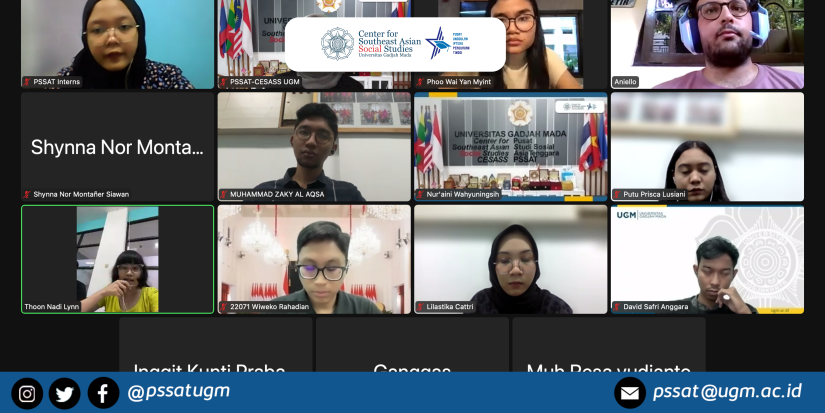
On March 21/2023, a weekly sharing session via zoom was conducted by Mr.Aniello Iannone who comes from Italy. He presented and lead the sharing session with his Master’s Degree thesis topic, “Responding to Anti-human trafficking: The Role and Challenges of NGOs in Indonesia”. He is been a lecturer at the Faculty of Social and Political Science in Universitas Diponegoro (Undip) Semarang and a researcher who explores various topics focusing on democracy, politics, political economy, and international relations in Indonesia and Southeast Asia regions. His thesis was intended to find out the challenges faced by NGOs that are working on Human Trafficking issues, the law enforcement towards anti-human trafficking in Indonesia, and the motives of people who got trafficked. He used qualitative research analysis, specifically the interview method, and 3-5 NGOs in Indonesia had been interviewed.
Firstly, he explored the international and national laws of human trafficking in history and mentioned the Palermo Protocols tools, which were the first international legislation against human trafficking. In Indonesia, Law No.21 of the 2007 Human Trafficking Act has been applied to regulate human trafficking. Mr. Aniello discussed several types of human trafficking in Indonesia, which are domestic labor, child work, sex work, migrant work, natural disasters, and servile marriage. The main causes of human trafficking in Indonesia are social-economic problems, poverty, weak law enforcement, and poor judicial systems. The statistic showed that human trafficking in Indonesia became more prominent after the Pandemic. In Southeast Asia, the Philippines is the only country that has full control and well-established law enforcement regulating human trafficking.
Second, He also discussed the challenges and barriers faced by NGOs and mentioned the common obstacles that had been stated by NGOs in the interview. The low education level, lack of knowledge of legislation, and misperceptions of human trafficking laws (where the case is rather treated as a “crime of fraud” than a trafficking case) are the problems NGOs are overcoming with human trafficking crimes. It is also found that people who got trafficked are people who are looking for their basic needs such as telephone, fans, and other necessities. So, it is concluded that the poorer the people are, the higher they would get trafficked.
Lastly, the sharing session was followed by discussions with the attendees, and different perspectives, and opinions had been shared and contributed to this week’s sharing session.
By: Thoon Nadi Lynn
